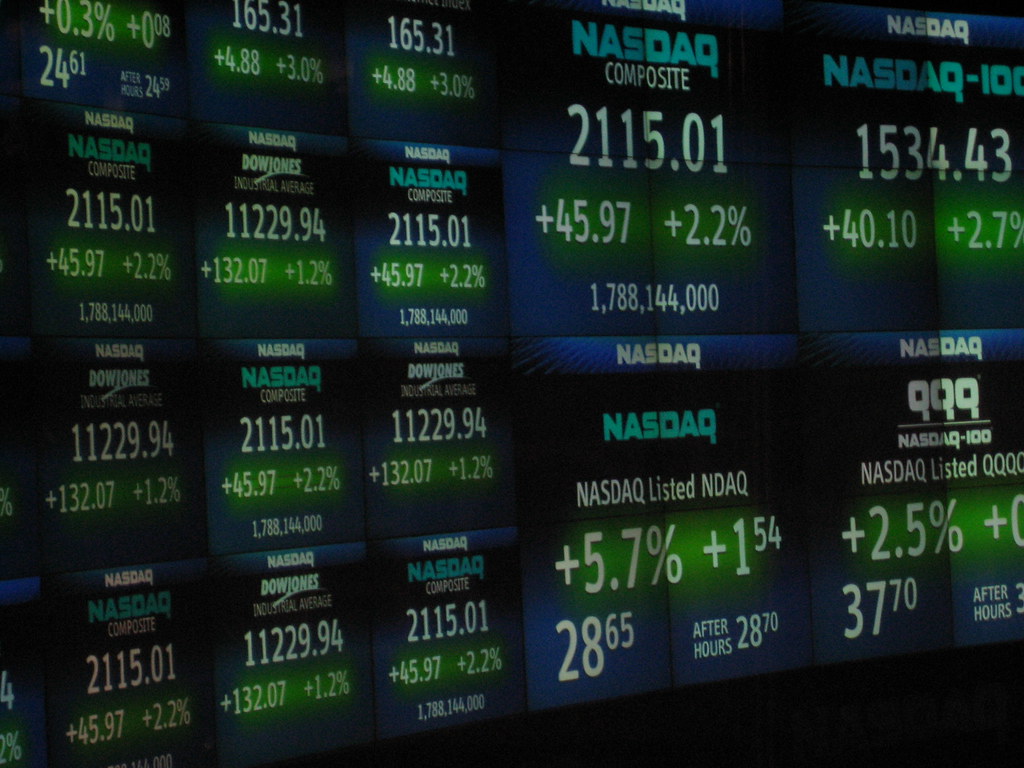Navigating the Paradox: Exploring Record High Stock Prices Amidst War and Crisis

NASDAQ - Times Square
In the midst of global turmoil, the spectacle of soaring stock prices presents a curious paradox. While headlines scream of conflict and economic uncertainty, financial markets continue to reach unprecedented highs, leaving many puzzled observers questioning the disconnect between Wall Street and the broader world.
Amid geopolitical tensions and the specter of conflict, one might expect financial markets to reflect a sense of caution or pessimism. Yet, the opposite appears to be true, as investors pour funds into equities, driving stock prices to dizzying heights.
While high stock prices can benefit investors and those with significant stock holdings, they may not reflect the financial well-being of the broader population. Wealth inequality can persist or worsen even as stock prices rise, leading to economic instability and social tensions.
Stock prices reflect investor sentiment and expectations about future corporate earnings, but they don’t necessarily reflect the health of the real economy. Economic indicators such as employment levels, wages, consumer spending, and GDP growth provide a more comprehensive view of economic health. Even if stock prices are high, other economic indicators may indicate underlying weaknesses or vulnerabilities.
Exploring Record Stock Prices Amidst War and Economic Crisis
High stock prices can encourage excessive risk-taking and leverage in financial markets, which can lead to the accumulation of debt and financial instability. If investors become overextended or if there are disruptions in credit markets, it can trigger a financial crisis that reverberates throughout the economy, regardless of stock prices.
Yet, there are some reasons to explain why markets are so far from reality that can be considered :
Investors in the stock market often have different time horizons and access to varying degrees of information. Short-term traders, algorithmic trading systems, and institutional investors may focus on short-term price movements or market trends, while long-term investors may take a more fundamental approach, considering the underlying value and growth potential of companies. This disparity in time horizons and information flows can contribute to fluctuations in stock prices that appear disconnected from day-to-day life.
The globalization of financial markets can contribute to the perception of detachment from everyday life, as stock prices are influenced by a complex web of factors that may not directly correlate with individual experiences or economic realities.
But as you can easily understand, all of that becomes a problem, because Economies of States are based on markets and if the limitation of financial markets make some people richer while that big part starves, it will be not sustainable.
The idea that a state’s economy should not be solely reliant on markets is a perspective held by some economists and policymakers, particularly in light of experiences like Greece’s financial crisis. The argument against excessive reliance on markets often revolves around concerns regarding market volatility, speculative behavior, and the potential for financial crises to have devastating effects on economies.
Stock prices can increase during wars for several reasons. Firstly, investors may anticipate increased government spending in sectors like defense and security, benefiting companies linked to these industries. Additionally, wars can create business opportunities for certain companies, such as those involved in post-conflict reconstruction. Furthermore, accommodative monetary policies implemented by central banks to support the economy during wartime periods can also boost financial markets. Finally, the uncertainty and volatility induced by conflicts may lead some investors to seek refuge in stocks due to their potential for returns.
US have a public debt of 35 trillion dollars. A lot of countries have also a lot of debt. This debt can be bought on markets and can cause again, a lot of pain of everyday people.
We built central banks to “regulate” the economies and still we needed a central bank of central banks, the IMF (simplified) to insure an economic stability that markets don’t give.
So why don’t fix market first ?




